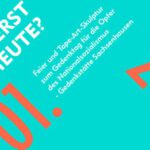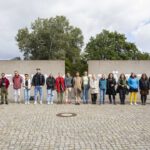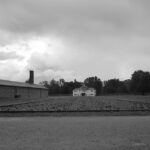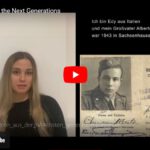Danielle Chaimovitz gave a speech on occasion of the Day of Remembrance for the Victims of National Socialism at the Memorial Sachsenhausen on 27 January 2023
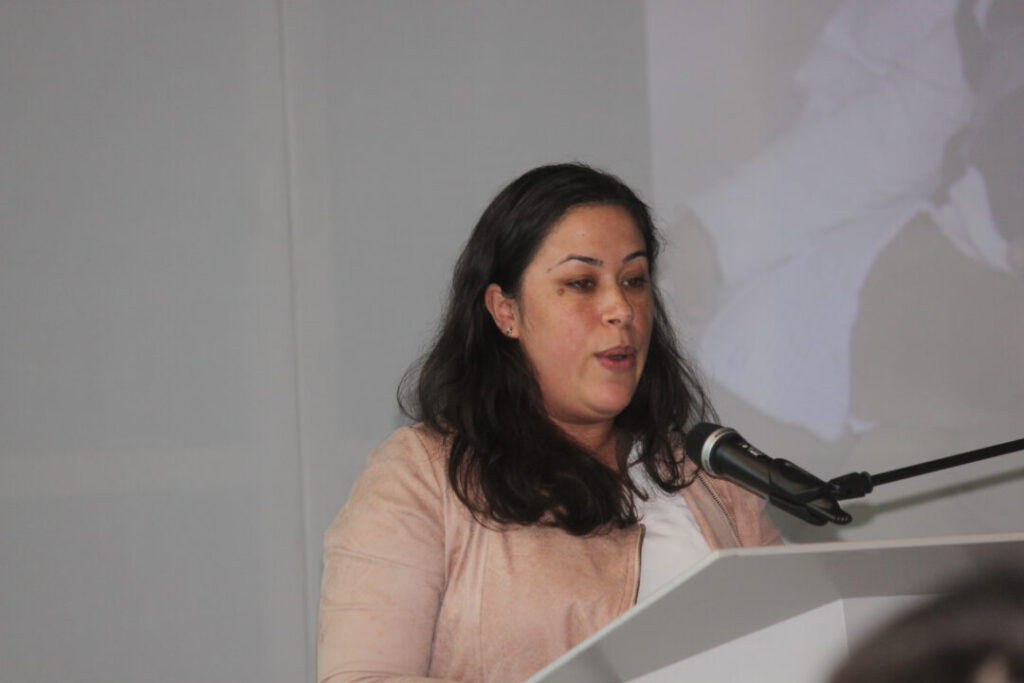
80 years ago, my grandfather, Hirsz Litmanowicz arrived to Sachsenhausen in August 1943 at the age of 12, with 10 other Jewish boys who were sent from Auschwitz to be experimented on here. He was here until April 1945 when he went on a death march and liberated.
In 2015 my grandfather arrived here for the last time. I flew in to introduce him to my son, his first great grandson. We met not far from here and he told me “I forbid you to go to Sachsenhausen”. He called it Hell. He said: „It’s hard enough for me as it is and you seeing what I went through here would make it harder.“ So I spent 5 days touring Berlin and didn’t dare to even google Sachsenhausen.
Until I received an email about the Next Generations in Dialogue symposium and started my own relationship with the memorial, initially afraid of telling my grandfather about my interest here. Today I am here a third time, with his blessing, support and also a request: don’t forget.
Memory is an important element in Judaism. In every Jewish ceremony, holiday or event we always remember our past. Our memory is based on three elements: a story, actions and its connection and relevance to today. Since coming to the memorial for the first time, as well as today – all those elements are coming together for me.
As a third generation, I grew up with the trauma of the war and being embarrassed of it. Never in a million years I would think that part of my healing would be connected with the place that is one of the main causes for the trauma that runs in my family.
If memory is based on those three elements than first of all, in order to properly remember the past, or this part of history – we should know it. It’s our responsibility to learn, discuss and understand what happened.
My relationship with the memorial and the fortune of still being able to speak with my grandfather have changed the way I remember. In school I was taught the history of the holocaust. In addition to the living history of having 4 grandparents who survived the war, I was taught that the world kept silent and no one stood up to the Jews. But when I arrived here I was fortunate to learn that it’s not fully the case. I met people whose grandparents arrived here because they couldn’t stay silent. That kindness and compassion were present even here.
But there is another crucial element – actions. Ceremonies are not enough, classes are not enough. In Judaism, memory is also aimed at moving us into action and doing something that is beyond just speaking.
Standing here today, I know that this is our responsibility as the last generations to hear the stories from the people who were there and the generations to come to keep the memory alive. It is our role to remind the world that humanity can reach incomprehensible cruelty. That is what obligates us to make efforts to invest in acts of kindness and compassion.
I promised my grandfather I will ask everyone here to remember them, to remember him, so I am doing it on his behalf. Adding “We will never forget” can sound very specific, but that’s not about holding a grudge and never forgive.
It means we don’t forget our role is to keep remembering our purpose – we can never forget so that we can always aim to be better.

Author
Danielle Chaimovitz
